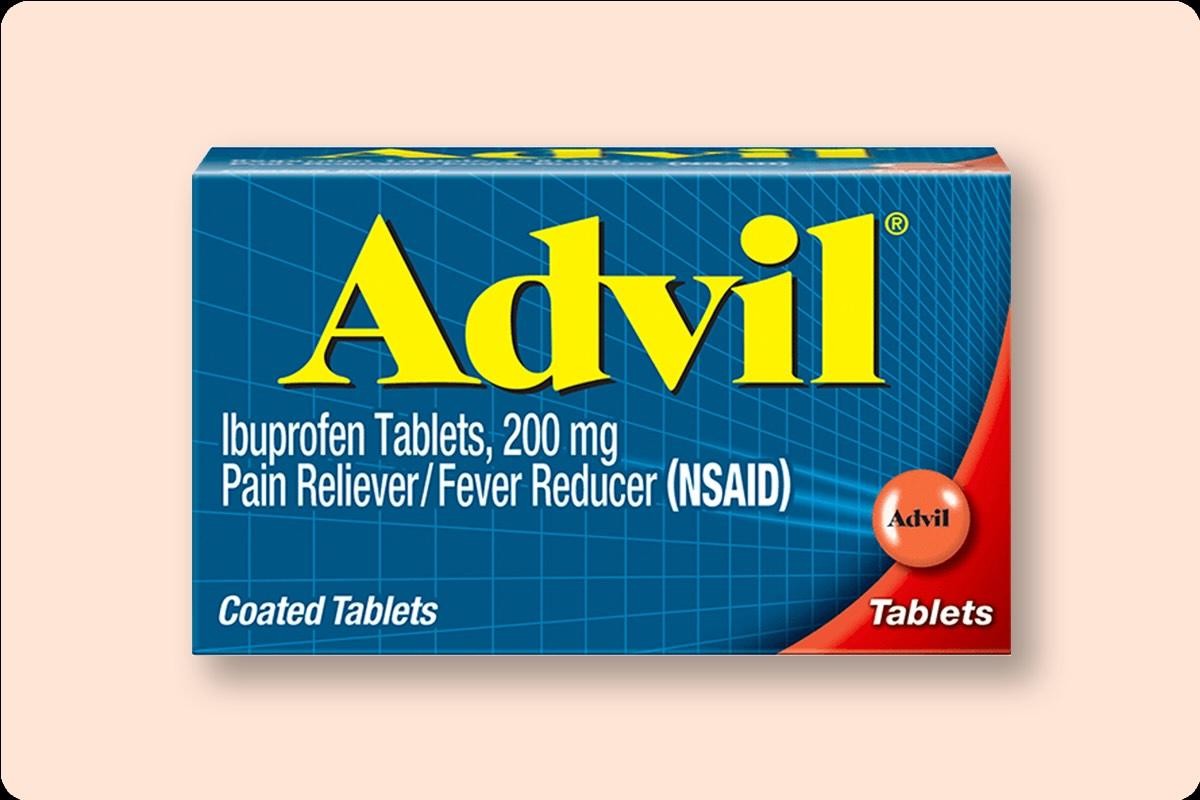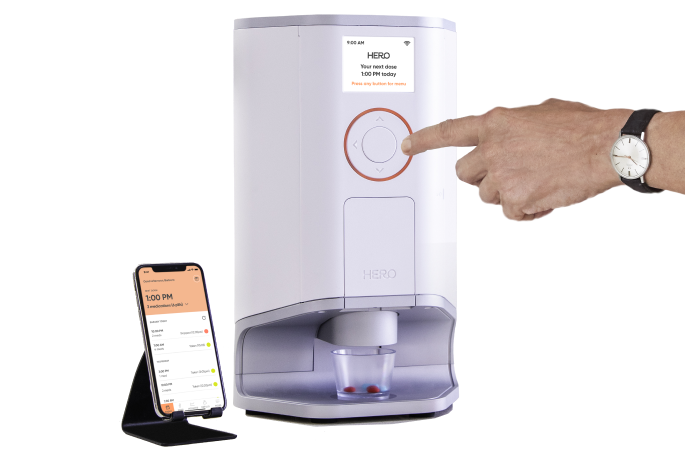Can you overdose on Advil & other medication dosage FAQ

Learn about medication safety, dosages, and risks, including information on Advil overdose, ibuprofen toxicity, pain relievers, stomach pain, kidney failure, and more. Find out how to take control of your medication and avoid the risk of overdose!
What is Advil and How Much Ibuprofen is Too Much?
Advil is a popular over-the-counter medication used to relieve inflammation and mild pain. As a brand of ibuprofen, it belongs to the same class of nonsteroidal anti-inflammatory drugs (NSAIDs) that are widely utilized to treat conditions such as fever and inflammation. When taking ibuprofen, adhering to the recommended dose is essential to achieve effectiveness and minimize potential side effects.
In this comprehensive guide, we'll explore common questions about recommended doses for some over the counter pills, including the risk of ibuprofen overdose and the impact of NSAIDs.
Can You Overdose on Advil? - Ibuprofen Overdose Explained
Yes, overdosing on Advil is a possibility. This nonsteroidal anti-inflammatory drug treats fever, mild pain, and inflammation. Too much ibuprofen can damage your stomach, intestines, or other organs, resulting in serious side effects and symptoms like stomach pain and gastrointestinal bleeding. In rare cases, an ibuprofen overdose can be fatal, leading to heart attacks or kidney failure.
The recommended adult dosage is one or two 200 milligram (mg) Advil tablets every 4 to 6 hours, not exceeding 800 mg at once or 3,200 mg daily.
Pro tip: To avoid the risk of taking too much ibuprofen, consider using a storage solution that puts your safety first. The Hero smart dispenser, for instance, can store, sort and dispense both your scheduled and as-needed medication, and can prevent you from dispensing meds above your daily limit.
Taking Ibuprofen with Other Pain Relievers - Is it Safe?
Yes and no. Because Advil, Tylenol (or any acetaminophen), Aleve (naproxen sodium) and aspirin are two different classes of pain relievers, they’re processed in different organs.
NSAIDs like Advil (ibuprofen), Motrin, Aleve (naproxen), and aspirin are processed through the kidneys. The active ingredient in Advil is the same as in Motrin, another over the counter version of ibuprofen. Taking multiple NSAIDs together can lead to higher risk conditions like intestinal bleeding, heart attacks, or kidney damage. In rare cases reported, misuse of these meds can lead to life threatening health complications, emphasizing the importance of adhering to recommended guidelines.
Conversely, acetaminophen (Tylenol) is processed by the liver, and it's generally safe to take along with NSAIDs. This is important to know, because acetaminophen is found in a lot of over-the-counter (OTC) medications you might not think of, like:
- Cough syrups
- Menstrual cramp relief
- Excedrin®
- Sudafed®
The most important thing is to keep track of the dosage for each drug to avoid any potential overdose, which could require prompt medical treatment.
How Does Alcohol Interact with Advil and Other Medications?
It's essential to be cautious when combining alcohol with any medication, including Advil. Alcohol can increase the risk of stomach bleeding when mixed with ibuprofen. Additionally, combining alcohol with other over-the-counter pain relievers can lead to liver damage or other severe complications. Always read medication labels and consult with a healthcare provider if you're unsure about potential interactions.
Ibuprofen and Pain Relievers: Recommended Dosage
- While you shouldn’t exceed more than 3,200 mg of Advil a day, you should avoid taking more than 3,250 mg of Tylenol or other acetaminophen a day.
- Each pill or tablet of Regular Strength Tylenol is 325 mg, and the recommendation is to take 2 pills every 4 to 6 hours, ingesting no more than 10 in a 24-hour period.
- Extra Strength Tylenol, at 500 mg per tablet, is recommended at 2 pills every 6 hours, taking no more than 6 tablets in 24 hours.
- Doctors recommend taking no more than 3 of Aleve’s 220 mg pills in 24 hours, and no more than 12 Regular Dose (325 mg) aspirin tablets or 48 Low Dose (81 mg) aspirin tablets in 24 hours.
If your usual dose of Advil no longer relieves pain, consult your doctor. They may suggest alternatives such as prescription medications or therapies like massage and acupuncture.
Can Advil cause low blood pressure?
Actually, Advil may lead to a slight increase in blood pressure in some individuals. Regular monitoring and consultation with a healthcare provider are advisable if using Advil, especially for children and those with existing cardiovascular concerns.
Can I take Advil on an empty stomach?
It's generally recommended to take it with food or milk. This can help reduce the risk of stomach upset or gastrointestinal issues. If you experience severe stomach pain, vomiting blood, or black or bloody stools after taking Advil, seek medical attention immediately.
Are there any long-term effects of regular Advil use?
While Advil can be beneficial for occasional pain relief, long-term use can lead to potential complications. Chronic use can increase the risk of heart disease, kidney problems, and high blood pressure. If you find yourself reaching for Advil or any other pain reliever frequently, it's essential to discuss this with your healthcare provider. They can provide guidance on safer, long-term pain management strategies.
If I miss a dose of my medication, can I just take two the next day?
No. Doubling up on medication can cause serious side effects. The consequences of missing one dose varies depending on the drug. Drugs prescribed to manage epilepsy or diabetes, for example, may result in a more serious outcome when missed.
Always review your medication pamphlet and consult your doctor for further instructions if you’ve missed a dose, but the general rule is that if you’ve missed your dose within 2 hours of your usual dosage time, take the missed dose immediately. If you frequently miss doses, consider integrating a medication management service like Hero into your home, so you can receive medication reminders when it’s time to take your next dose and dispense your needed meds at the push of a button.
How Does Age Affect Dosage Recommendations?
Age plays a significant role in how our bodies metabolize medications. Children, due to their developing organs and smaller body size, often require different dosages than adults. Similarly, as we age, our liver and kidney functions might decline, affecting how we process medications. Always refer to age-specific guidelines when administering medications, especially for children and the elderly. If in doubt, consult with a healthcare professional.
Can You Overdose on Vitamins and Supplements?
Yes. If you feel like you’re not getting enough of a certain vitamin or other nutrient through your diet, it’s natural to reach for a supplement. However, any time you take a vitamin or other nutrient in pill form, it’s possible to take too much.
Vitamins
There are two kinds of vitamins: those that are water-soluble and those that are fat-soluble. Water-soluble vitamins aren’t generally stored in our bodies, so we need to get them from our diets and supplements. These are less likely to cause issues unless they’re taken in huge doses. There are 9 water-soluble vitamins:
- Vitamin C
- Vitamin B1 (thiamine)
- Vitamin B2 (riboflavin)
- Vitamin B3 (niacin)
- Vitamin B5 (pantothenic acid)
- Vitamin B6 (pyridoxine)
- Vitamin B7 (biotin)
- Vitamin B9 (folate)
- Vitamin B12 (cobalamin)
Meanwhile, fat-soluble vitamins are easily stored in your body, which means you can potentially build up toxic levels by taking too much. In your diet, these vitamins come from high-fat foods like fish, nuts and dairy products and vegetables like spinach, kale and carrots The 4 fat-soluble vitamins are:
- Vitamin A
- Vitamin D
- Vitamin E
- Vitamin K
While you always want to speak with your doctor before adding any new supplement or medicine to your regimen, it’s particularly important with fat-soluble vitamins since they pose a greater risk for overdose. Read the labels of every vitamin you plan to take to make sure you’re taking the right amount. Or, better yet, use the Hero app to store all of your vitamin information, and load them in the Hero smart dispenser to get your vitamins sorted and dispensed just how you need them!
Supplements
Nutritional supplements are an over $122 billion dollar industry in the U.S. alone. From probiotics to zinc, there are a whole host of supplements we’re all taking regularly. For brevity’s sake, here are two examples:
- Many people take calcium supplements to help keep our bones strong and healthy as we age, but getting too much can lead to heart attacks and strokes. That’s why the recommended daily amount is 1,000 to 1,200 mg, which includes the amount of calcium you get from your diet and any supplements. If you’re between the ages of 19 and 50, you should never exceed 2,500 mg per day, and if you’re over 50, your daily maximum should actually be 2,000 mg.
- Garlic, or garlic oil, is another common supplement taken to help with high blood pressure, cholesterol, diabetes and more. Experts recommend taking 2 to 5 mg of garlic oil per day, or 300 to 1,000 mg of garlic extract per day. Taking too much generally results in an upset stomach, bloating, diarrhea, bad breath and body odor. If you start bruising easily or suffer nosebleeds or bleeding gums, you may be experiencing an allergy or a bad side effect and should stop taking this supplement immediately.

Why do some supplements include vitamins with a %DV higher than 100%?
Multivitamins and supplements could contain vitamins in quantities above 100% of your daily recommended value (or DV) for a number of reasons.
For one, your body absorbs nutrients less effectively through supplements than through healthy foods. Supplements compensate for this by including more than 100% DV. Additionally, the actual amount of vitamins a person needs each day is by no means a universal number. Percent DV is based on a 2,000 calorie diet in healthy adults, but these numbers are updated often, and will depend on various factors like a person's age, weight, and diet.
You can often find vitamins B-complex and vitamin C in percentages of over 1000%, or even 2000%, which can sound scary to ingest, but don’t worry about overdosing on these vitamins. The amount that you would need to take to see any negative effects from vitamins B or C is much higher than that, and any excess nutrients that your body can’t absorb will get flushed out of your system next time you use the bathroom.
Other nutrients however, particularly the fat-soluble vitamins, do have an Upper Limit (UL) to how much your body can support, and can have long term effects on your health. Small amounts of these vitamins are required in the diet to promote growth, reproduction, and health.
What About Herbal Supplements and Medications?
Many people believe that because herbal supplements are "natural," they're safe to combine with medications. However, certain herbs can interact negatively with medications. For instance, St. John's Wort, a popular herbal remedy for depression, can interfere with the effectiveness of many drugs. Always inform your doctor about any herbal supplements you're taking to ensure there are no harmful interactions.
What to Do If You Took Too Much Advil or Other Medication?
If you take ibuprofen and experience symptoms described above, stay calm and call your local emergency services or Poison Control, which you can reach 24/7 in the U.S. at 1-800-222-1222. Depending on how much ibuprofen have you taken, the symptoms and the case report, treatment may require a breathing machine or other urgent care. If you consider the situation to be non-life-threatening, Poison Control can also help online:
- Not experiencing serious symptoms, like heart palpitations or trouble breathing
- In generally good health
- Not pregnant
- Between the ages of 6 months and 79 years
Complex med schedule? We solved it.
Hero’s smart dispenser reminds you to take your meds and dispenses the right dose, at the right time.

Hero: Your Partner in Medication Management
When a person needs to take ibuprofen or other medications, managing the correct dosage is important. In most cases, following the guidelines can prevent an overdose. However, if an overdose does occur, recognizing the symptoms quickly can be crucial. Utilizing tools like Hero may help you stay organized with your medication, and the app can help you confirm which medications you have taken and whether you are on schedule with your doses.

Understanding the Risks of Drug Overdose and Too Much Ibuprofen
Whether it's understanding the risk of Advil overdose (ibuprofen poisoning), managing side effects, or other issues related to drug dosage, staying informed is crucial. This guide aims to answer your questions and help you take control of your medications and supplements responsibly. Always consult your doctor or local poison center for personalized recommendations and assistance.
The contents of the above article are for informational and educational purposes only. The article is not intended to be a substitute for professional medical advice, diagnosis, or treatment. Always seek the advice of your physician or other qualified clinician with any questions you may have regarding a medical condition or its treatment and do not disregard professional medical advice or delay seeking it because of information published by us. Hero is indicated for medication dispensing for general use and not for patients with any specific disease or condition. Any reference to specific conditions are for informational purposes only and are not indications for use of the device.



